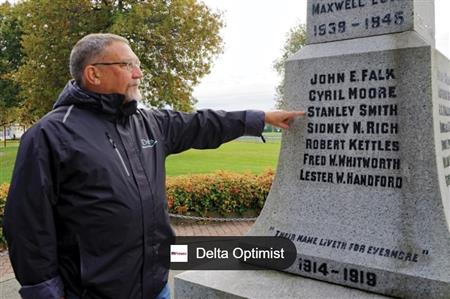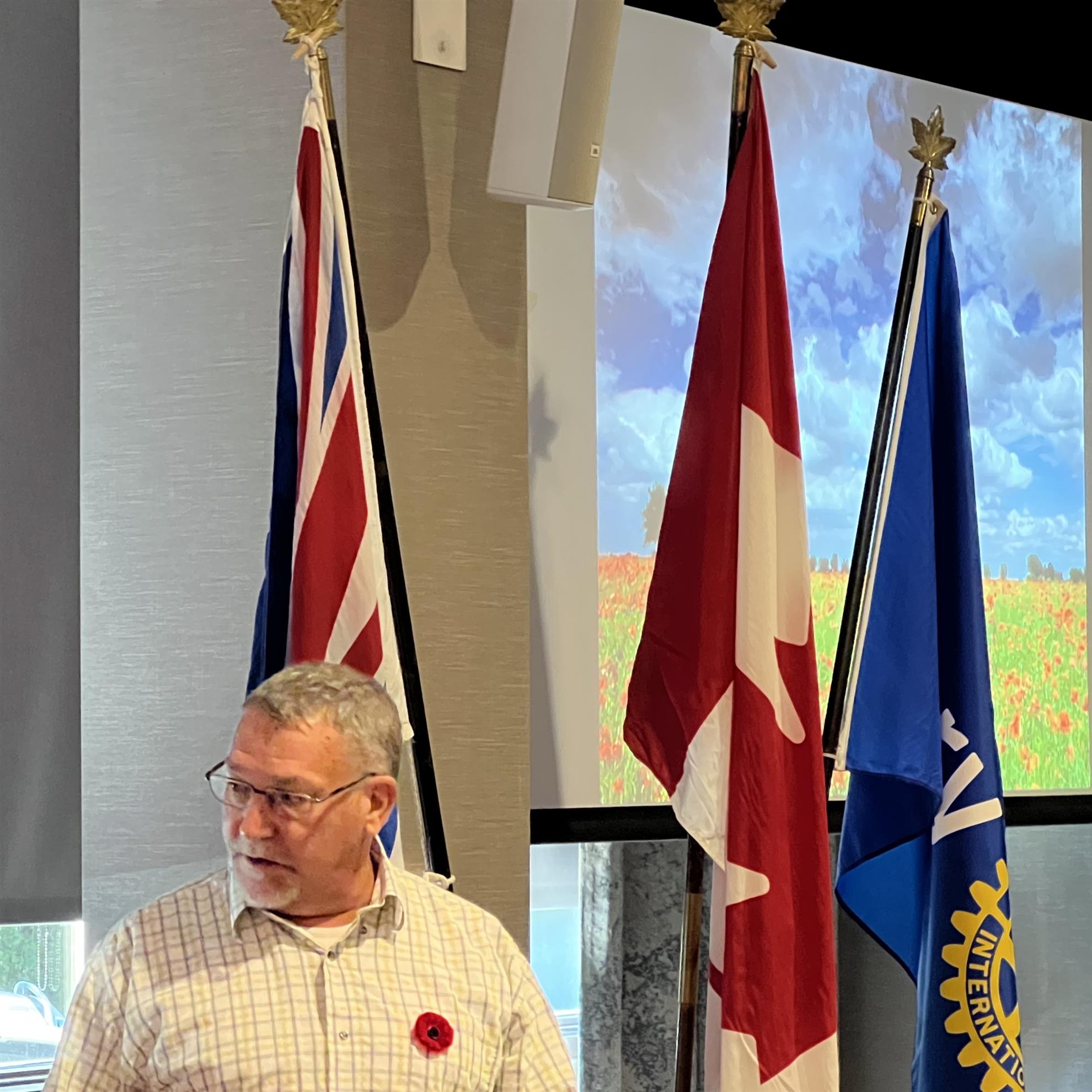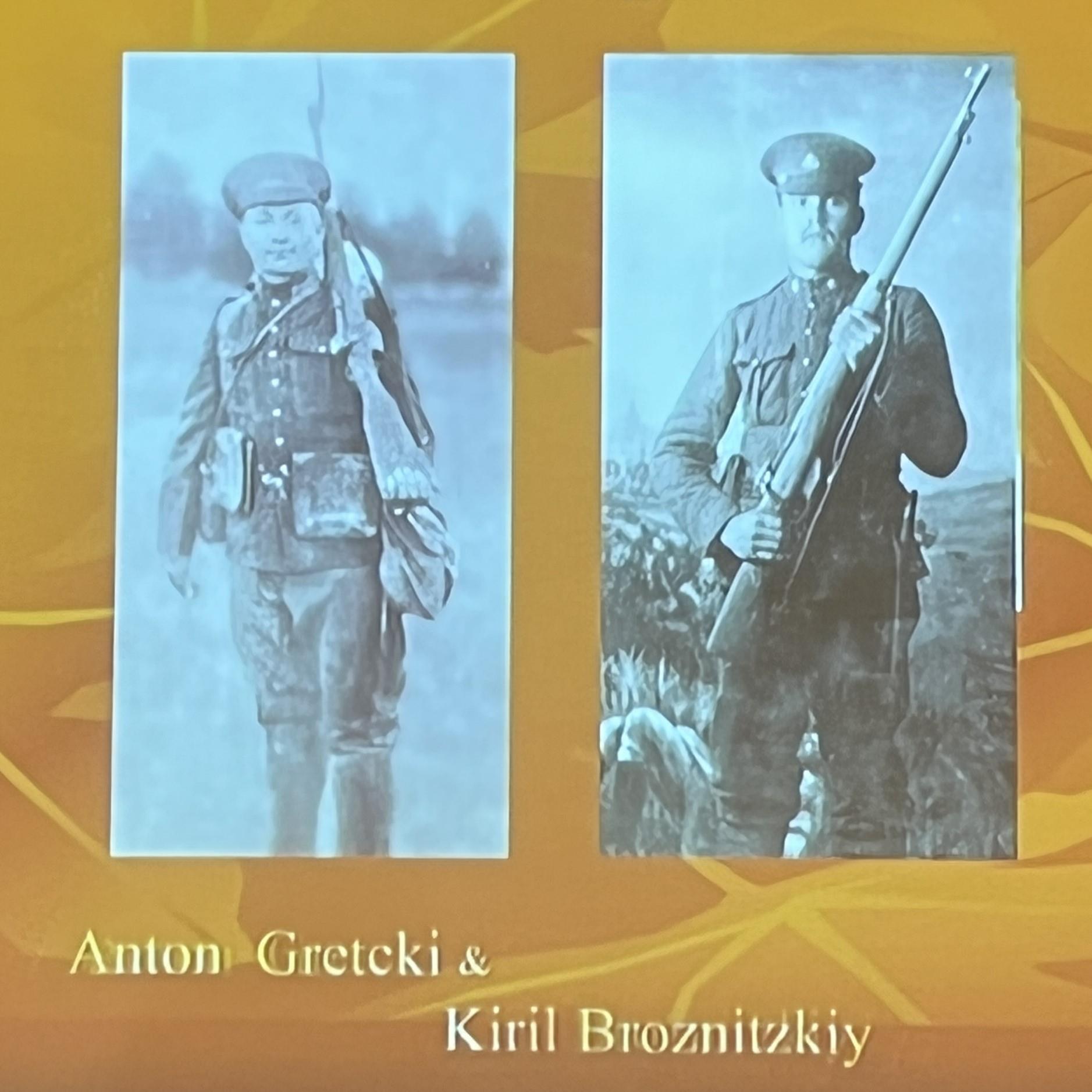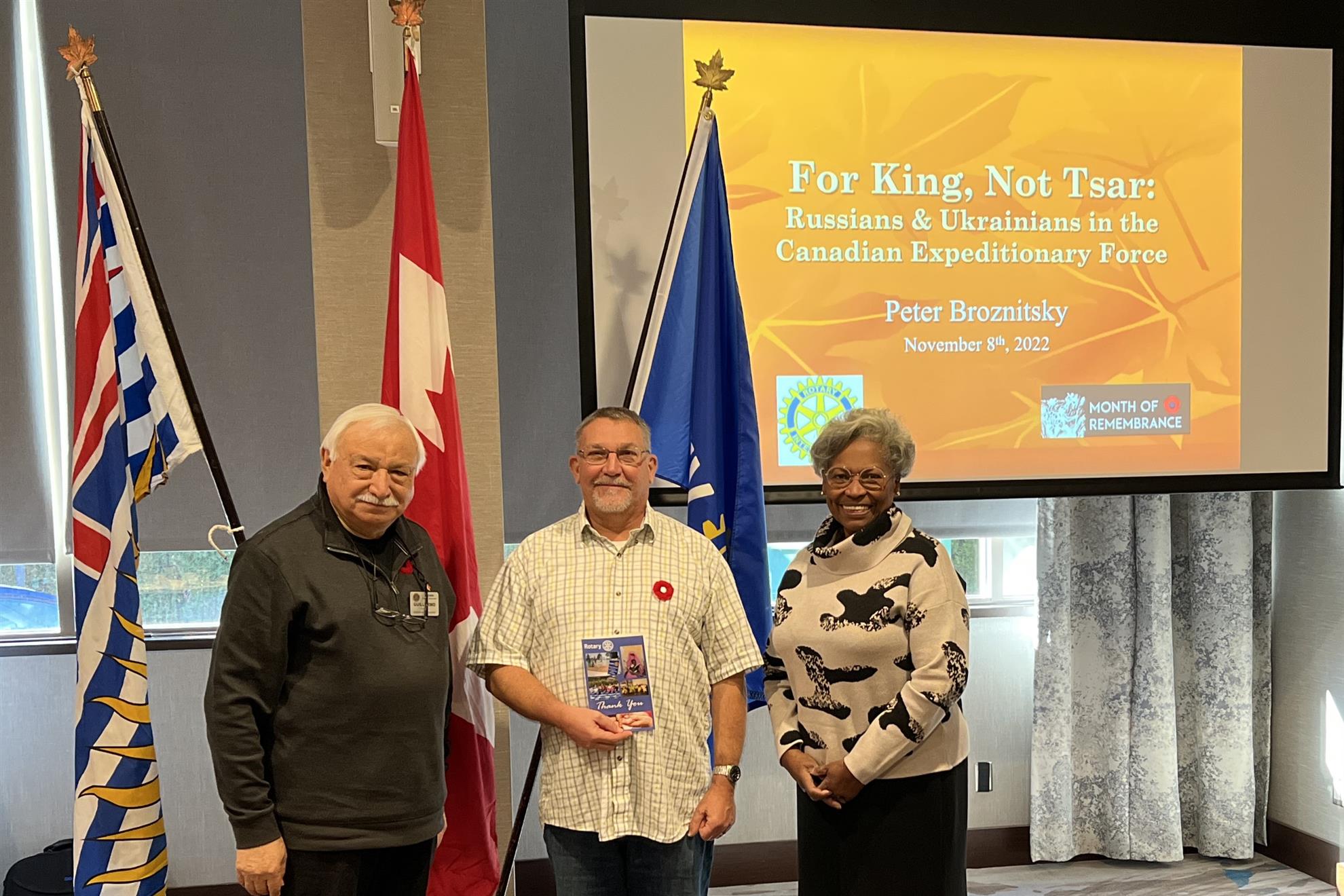
 Peter Broznitsky has been researching various aspects of the Canadian experience in the World Wars since 2003. He has spoken at seminars from Victoria to Halifax. He has published several articles on various topics related to the “Great War” as WWI was known.
Peter Broznitsky has been researching various aspects of the Canadian experience in the World Wars since 2003. He has spoken at seminars from Victoria to Halifax. He has published several articles on various topics related to the “Great War” as WWI was known. Peter moderates the Canadian Expeditionary Force Study Group online forum and is past chair of the Pacific Coast Branch of the Western Front Association. He is also an ex-Commissioner of the Delta Heritage Advisory Commission.
 |  |
Wayne Gretzky's grandfather, Anton, and Peter Broznitsky's grandfather, Kiril, both served in the Canadian army in WWI | President Guillermo Bustos and Avis Glaze thank Peter Broznitsky |
The term “enemy alien” referred to the citizens of states legally at war with Canada who resided in Canada during the war. Under the authority of the WMA, Canada interned 8,579 enemy aliens in 24 receiving stations and internment camps from 1914-1920. Of those, 3,138 were classified as prisoners of war, while the others were civilians. The majority of those interned were of Ukrainian descent, targeted because Ukraine was then split between Russia (an ally) and the Austro-Hungarian Empire, an enemy of the British Empire. In addition to those placed in camps, another 80,000 enemy aliens, again mostly Ukrainians, were forced to carry identity papers and to report regularly to local police offices.